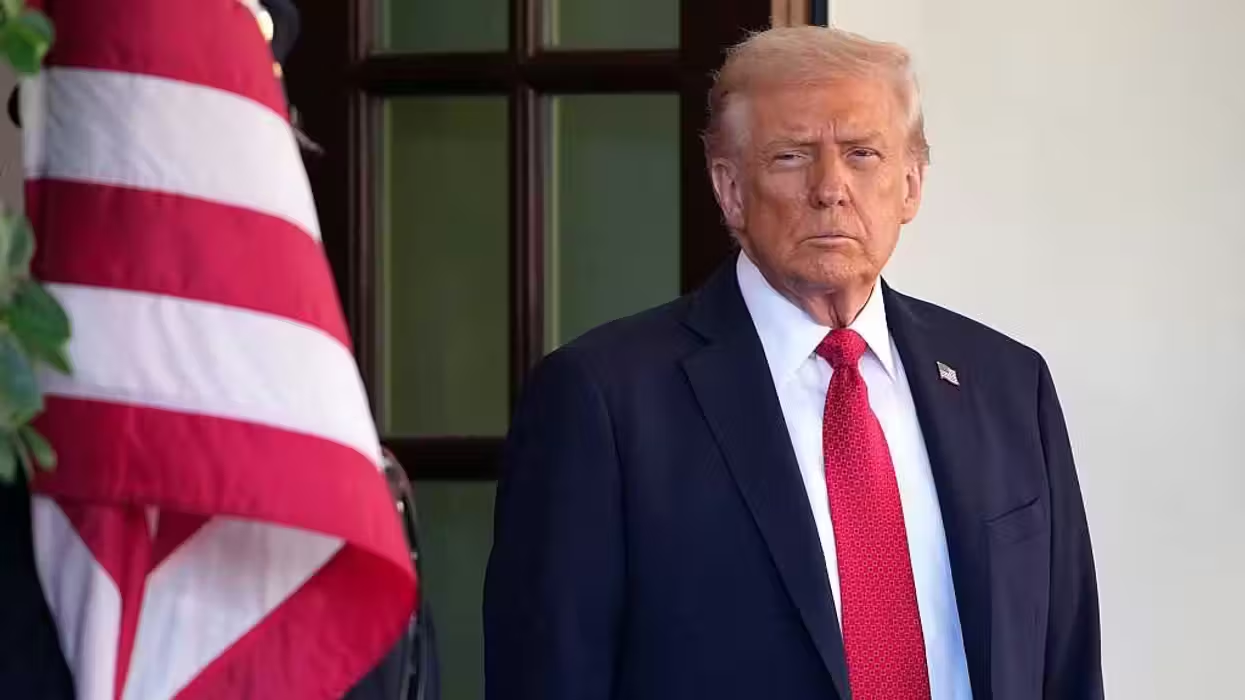© 2025 Blaze Media LLC. All rights reserved.
"We know the Affordable Care Act is constitutional and are confident the Supreme Court will agree."

WASHINGTON (AP) -- The Supreme Court said Monday it will hear arguments next March over President Barack Obama's health care overhaul - a case that could shake the political landscape just as voters are about to decide if Obama deserves another term.
The decision to hear arguments in the spring allows plenty of time for a decision in late June, just over four months before Election Day. This sets up an election-year showdown over the White House's main domestic policy achievement.
The justices announced they will hear more than five hours of arguments, an extraordinarily long session, from lawyers on the constitutionality of a provision at the heart of the law. The provision in question is the requirement that individuals buy health insurance starting in 2014 or pay a penalty, and other related questions about the act.
A White House spokesman said, "We are pleased that the court has agreed to hear this case."
"We know the Affordable Care Act is constitutional and are confident the Supreme Court will agree," communications direct Dan Pfeiffer said in a statement.
Republicans have called the Patient Protection and Affordable Care Act unconstitutional since before Obama signed it into law in March 2010. But only one of the four federal appeals courts that have considered the health care overhaul has struck down even a part of the law.
The federal appeals court in Atlanta said Congress exceeded its power under the Constitution when it adopted the mandate. The federal appeals court in Cincinnati upheld the entire law, as did appellate judges in Washington, DC, in recent days.
The case could become the high court's most significant and political ruling since its 5-4 decision in the Bush v. Gore case nearly 11 years ago effectively sealed George W. Bush's 2000 presidential election victory.
In addition to deciding whether the law's central mandate is constitutional, the justices will also determine whether the rest of the law can take effect even if that central mandate is held unconstitutional.
The court also will look at the law's expansion of the joint federal-state Medicaid program that provides health care to poorer Americans. The states say the law goes too far in coercing them into participating by threatening a cutoff of federal money.
Want to leave a tip?
We answer to you. Help keep our content free of advertisers and big tech censorship by leaving a tip today.
Want to join the conversation?
Already a subscriber?
Jonathon M. Seidl is a former managing editor of Blaze News and a best-selling author and speaker. His next book, “Confessions of a Christian Alcoholic,” will be released on October 7, 2025.
Jonathon M. Seidl
Jonathon M. Seidl is a former managing editor of Blaze News and a best-selling author and speaker. His next book, “Confessions of a Christian Alcoholic,” will be released on October 7, 2025.
more stories
Sign up for the Blaze newsletter
By signing up, you agree to our Privacy Policy and Terms of Use, and agree to receive content that may sometimes include advertisements. You may opt out at any time.
Related Content
© 2025 Blaze Media LLC. All rights reserved.
Get the stories that matter most delivered directly to your inbox.
By signing up, you agree to our Privacy Policy and Terms of Use, and agree to receive content that may sometimes include advertisements. You may opt out at any time.





